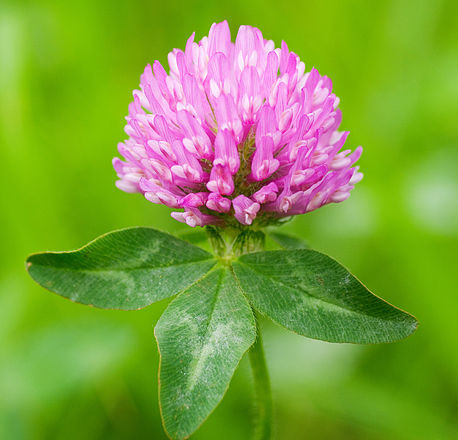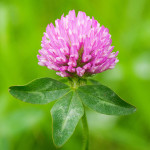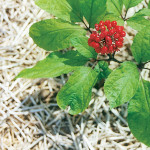
Sexual Help for Women, Naturally Oyster Bay, NY Tuesday, May 25, 2010
Viagra has been on the market for several years to help men with sexual function. Now, a female sex enhancer is also available! Foods, herbs and vitamins/nutrients can be safely and effectively used as libido boosters. Herbs have stood the test of time afforded by long time traditional use.
The dictionary definition of Aphrodisiac is: something that arouses or intensifies sexual desire. The word probably originated in the early 18th century, gleaned from the Greek,
Aphrodisiakos- arousing sexual desire, and Aphrodite-the goddess of sexual love. Here are some readily available herbs that may be useful to enhance female desire, by helping to balance hormones: Cimicifuga racemosa (Black Cohosh)
Cimicifuga racemosa has been traditionally used to treat uterine disorders and restore menstrual activity. It is now a popular treatment for perimenopausal and postmenopausal symptoms including hot flashes, depression, and emotional disturbances (Pepping 1999). A review of eight human studies concluded that C. racemosa was a safe and effective alternative to estrogen replacement therapy (ERT) when ERT is contraindicated for a menopausal woman (Lieberman 1998).
Similarly, extracts of C. racemosa demonstrated estrogen-like effects in postmenopausal women taking the extracts for 2 months. Luteinizing hormone (LH) levels decreased significantly compared to women on placebo while follicle-stimulating hormone (FSH) remained the same (Duker et al. 1991). Although not all studies demonstrate the estrogenic effects of C. racemosa, a review article assessing the value of this herb for menopausal symptoms concluded that “extracts of this plant have to be considered as a safe and effective natural treatment for menopausal complaints such as hot flashes, profuse sweating and sleep disturbances” (Liske 1998).
Angelica sinensis (Dong Quai)
Dong quai, prepared from the root of Angelica sinensis, has been purported to have estrogenic effects. Despite this historic assertion, dong quai did not demonstrate estrogenic effects in a randomized, double blind, placebo controlled clinical trial as measured by thickening of the endometrium, improvements in vaginal cytology, or in relieving menopausal symptoms in postmenopausal women. Dong quai, however, is seldom used alone; Traditional Chinese Medicine practitioners typically prescribe this herb along with Paeonia lactifora (Shao Yao), Ligustici wallichii (Chuan Xiong), Atractylodes macrocephala (Bai Zhu), Alisma orientale (Ze Xie), and Poriae cocos (Fu Ling), a mixture which together is called Angelica paeonia powder (Hirata et al. 1997).
Trifolium pratense (Red Clover)

Trifolium pratense contains high amounts of phytoestrogens including genistein, daidzein, biochanin-A, pratensein, and formononetin. The studies outlined below were conducted with a proprietary extract of red clover isoflavones, as distinct from the herb red clover. It is not clear to what extent the whole herb may exercise the same or similar action.
Postmenopausal women taking 40 or 80 mg of a proprietary extract of T. pratense isoflavones for 5 weeks showed significant improvement in arterial compliance compared to placebo (Nestel et al. 1999). Since decreases in compliance can lead to hypertension, T. pratense may prove a valuable contributor to the reduction of cardiovascular risk in postmenopausal women. Parallel studies, however, have demonstrated no improvement in lipid profile with use of T. pratense (Howes et al. 2000).
The effect of T. pratense isoflavones on vasomotor symptoms was examined in a randomized, double-blind, placebo-controlled trial involving 30 menopausal women aged younger than 60 years. Women treated with a standardized proprietary extract of isoflavones derived from T. pratense (40 mg/day for 16 weeks) reported significant reductions in both the incidence and severity of hot flashes (Jeri 1999). Other clinical trials sponsored by the manufacturer of this proprietary extract also appear to support the clinical efficacy of this supplement for the treatment of menopausal symptoms.
In one study, treatment with T. pratense isoflavones (25, 50, or 75 mg/day) for 6 months in 50 postmenopausal women significantly increased bone density at the proximal radius and ulna, as measured by dual-energy x-ray absorptiometry (DXA). Authors of another study (n=50) involving postmenopausal women who consumed 60 to 70 mg/day of dietary isoflavones reported that the treatment significantly reduced bone turnover after 12 weeks as measured by osteoclast and osteoblast activity (NAMS Consensus 2000).
Panax ginseng (Asian Ginseng)

Korean red ginseng, also known as Asian ginseng, has been reported to have estrogenic activity, anti-stress action, and immunostimulating activity. Because of these properties, it may play a role in regulating psychological and other symptoms associated with menopause. Postmenopausal women with various symptoms, including fatigue, insomnia, and feelings of depression, were treated with 6 g Korean red ginseng daily for 30 days; they were compared to a control group of postmenopausal women who were free of these symptoms. After 30 days of treatment, the women with baseline symptoms had scores on psychological tests (Cornell Medical Index [CMI] and State-Trait Anxiety Inventory [STAI]) similar to those found in symptom-free group. Similarly, baseline cortisol levels and the ratio of cortisol to dehydroepiandrosterone (DHEA) were higher in postmenopausal women with the symptoms mentioned compared to the postmenopausal women without symptoms. Treatment with P. ginseng significantly reduced these levels in the symptomatic postmenopausal women (Tode et al. 1999).
A second randomized, multicenter, double-blind, placebo-controlled clinical trial involving 384 postmenopausal women found at least trends toward improvements in parameters measured by the Psychological General Well-Being Index (PGWB) questionnaire, a visual analogue scale (VAS) of menopausal symptoms, and the Women’s Health Questionnaire (WHQ) for participants receiving 200 mg/day of standardized extract of ginseng (1.5% ginsenosides) for 16 weeks, compared to controls. Statistically significant improvements for depression, well-being, and general health, but not for anxiety or vitality, were self-reported on the PGWB questionnaire. While trends of improvement, based on the VAS and WHQ, were reported for vasomotor symptoms and sleep disturbances, the changes were not statistically significant. Levels of estradiol, FSH, endometrial thickness, vaginal pH, and vaginal cytology did not change throughout the study (Wiklund et al. 1999).
Dioscorea villosa (Wild Yam)
The use of topical progesterone-containing creams has become very popular for treating symptoms of menopause. Although many individuals claim relief with the use of progesterone creams, no controlled clinical trials have evaluated these creams. Many products are purported to contain natural progesterone actually contain synthetic medroxyprogesterone acetate (MPA). Some creams contain an extract of Dioscorea villosa, which contains minute amounts of sterol derivatives and diosgenin, a compound that can be converted to progesterone in vitro but not in vivo (Taylor 1997).
Oenothera biennis (Evening Primrose) Oil
Oenothera biennis oil is high in gamma-linolenic acid (GLA), which has been investigated for its role in suppressing hot flashes associated with menopause. A randomized, double blind, placebo controlled pilot study of 56 symptomatic menopausal women, however, did not support the use of O. biennis oil for hot flashes. Menopausal women in this study took eight 500 mg O. biennis oil capsules (standardized to 8% GLA) daily for 6 months. The number of hot flashes experienced by women in both treatment and control groups decreased, with the treatment group experiencing only slightly fewer hot flashes than the control group (Chenoy et al. 1994). Further study is required before recommending O. biennis oil as an effective treatment for vasomotor symptoms.
Ellen Kamhi, Ph.D., R.N., AHN-BC, RH(AHG)
The Natural Nurse®
(954) 418-2388
